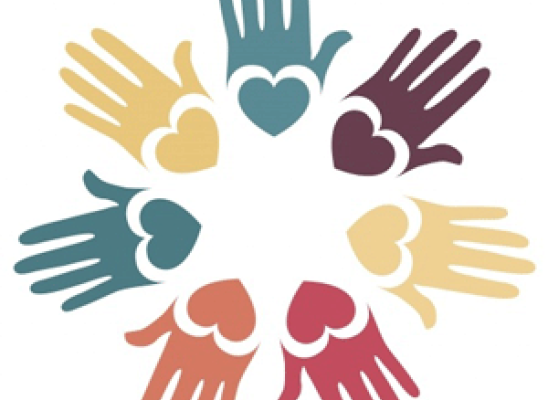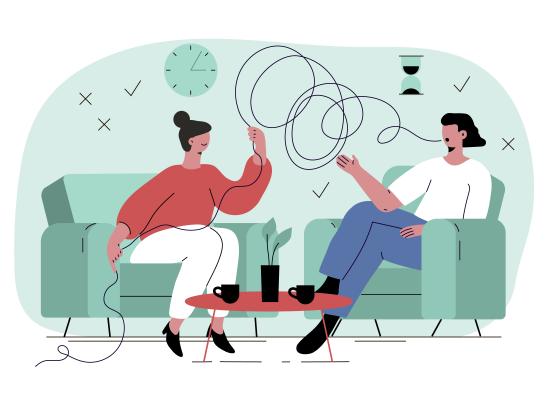Memantine: New Hope for Treating Trich

Online test
Find out the severity of your symptoms with this free online test
When we think of a medication that is used to treat a disorder, we often assume one condition, one drug to treat it, right? Well, biology has an interesting way of turning that idea around. Every now and then, a new treatment comes along that not only treats the condition it was designed for, but may also have some benefits for other conditions too. For example, chlorpromazine was originally developed to treat schizophrenia. It has also been shown to be helpful in treating tuberculosis. Gabapentin, originally developed as an anti-seizure medication, is now widely used to treat pain. A drug commonly used to treat rheumatoid arthritis has shown promise in treating certain other autoimmune disorders such as lupus. This list goes on and on.
These additional properties have meant more treatment options for more conditions. Why do some drugs meant for one condition sometimes help treat others?
While scientists don’t fully understand the reasons for this. They suspect, and research seems to support, that certain disorders, even those that may seem unrelated, may share certain biological characteristics that allow medications to target multiple pathways. This concept is opening the door for treating conditions in ways previously unavailable.
Trichotillomania is one of those disorders. Commonly known as compulsive hair pulling, trichotillomania is one of a group of disorders known as body focused repetitive behaviors (BFRBs). It is characterized by compulsive hair pulling that results in significant hair loss, currently treated primarily with therapy. There is no medication that has been shown to be effective in treating the disorder. Medication is sometimes used to treat various symptoms of co-occurring mental health issues such as anxiety and depression, and those are sometimes helpful in reducing pulling. However, a reliable medication to treat hair pulling remains elusive.
A recent medication developed to treat Alzheimer's dementia may be changing that. Memantine has caught the attention of researchers and the early results are promising.
What Is Memantine?
Memantine is a type of medication that functions a what’s known as a glutamate modulator. Glutamate is the most abundant neurotransmitter found in the brain and plays a key role in memory and learning. It’s what’s known as an “excitatory” neurotransmitter meaning that it helps to keep chemical “messages” moving from one nerve cell to the next. Glutamate also plays a role in the generation of a “calming” transmitter known as gamma-aminobutyric acid (GABA). GABA is important in sleep, relaxation, anxiety regulation and muscle function.
So, what does this have to do with trichotillomania?
Glutamate Dysregulation and Trich
Glutamate dysregulation occurs when the brain has too much or too little glutamate. This imbalance has been associated with a number of mental health disorders including:
- Mood and anxiety disorders
- Autism
- Depression
- Obsessive-compulsive disorder
- Schizophrenia
Glutamate dysregulation may also play a role in symptoms related to hair pulling and skin picking. Previous research has found that the antioxidant N-acetylcysteine (NAC), also a glutamate modulator, reduces symptoms for both hair pulling and skin picking.
There are currently few treatments available for hair pulling and other BFRBs. Because memantine is a glutamate modulator as well, researchers have begun to take a closer look at memantine and its potential use for treating BFRBs like hair pulling and skin picking. Could memantine help to reduce symptoms of hair pulling and skin picking? A recently published study suggests it could help.
The Results Are In
Building on previous memantine research, researchers conducted a double-blind, randomized, placebo-controlled study to explore the effects of memantine on hair pulling and skin picking symptoms. When compared to placebo, treatment with memantine resulted in significant reduction in hair pulling and skin picking symptoms. At the completion of the study, 60.5% of participants in the memantine treatment group were rated “much or very much improved.”
There were no significant adverse effects reported in any of the groups. None of the participants reported experiencing any type of suicidality during the study. Based on the results, the researchers concluded that memantine was safe and more effective than placebo in treating hair pulling and skin picking.
While much more research is needed to fully understand the role memantine may play in treating hair pulling and other BFRBs, the findings seem to support the notion that treatment via the glutamate system may offer a way to target core symptoms. One of the study’s authors noted that being able to link hair pulling and other BFRBs to biological underpinnings, and having medications to address symptoms, may help reduce the stigma associated with these disorders.
Memantine has shown promise in reducing symptoms of trich, but it is not considered to be curative. In fact, experts tend to recommend that, if prescribed for trich, memantine should be used in conjunction with established therapies including cognitive behavioral therapy and habit reversal training.
While the final verdict on memantine for treatment of hair pulling is still out, the results are promising. Future research can help to further determine the efficacy of memantine and its potential role in bringing new treatment options to people living with hair pulling and other BFRBs.
References
1. Using drugs for different diseases than initially intended for. (2024, January 22). ScienceDaily. https://www.sciencedaily.com/releases/2016/11/161129150501.htm
2. Carroll J. (2005). One drug, many uses. Biotechnology healthcare, 2(5), 56–61.https://www.ncbi.nlm.nih.gov/pmc/articles/PMC3570995/
3. Zagorski, N. (2023, April 6). Memantine may reduce hair-pulling, skin picking. Psychiatric News. https://psychnews.psychiatryonline.org/doi/full/10.1176/appi.pn.2023.05.5.29
4. Glutamate: What it is & function. (n.d.). Cleveland Clinic. https://my.clevelandclinic.org/health/articles/22839-glutamate
5. Grant, J. E., Odlaug, B. L., & Won Kim, S. (2009). N-acetylcysteine, a glutamate modulator, in the treatment of trichotillomania. Archives of General Psychiatry, 66(7), 756. https://jamanetwork.com/journals/jamapsychiatry/fullarticle/483113
6. Grant, J. E., Chamberlain, S. R., Redden, S. A., Leppink, E. W., Odlaug, B. L., & Kim, S. W. (2016). N-Acetylcysteine in the Treatment of Excoriation Disorder A Randomized Clinical Trial. JAMA Psychiatry, 73(5), 490-496. https://jamanetwork.com/journals/jamapsychiatry/fullarticle/2500041
7. Grant, J. E., Chesivoir, E., Valle, S., Ehsan, D., & Chamberlain, S. R. (2023). Double-blind placebo-controlled study of memantine in Trichotillomania and skin-picking disorder. American Journal of Psychiatry, 180(5), 348–356. https://ajp.psychiatryonline.org/doi/10.1176/appi.ajp.20220737
Online test
Find out the severity of your symptoms with this free online test
Start your journey with TrichStop
Take control of your life and find freedom from hair pulling through professional therapy and evidence-based behavioral techniques.
Start Now



